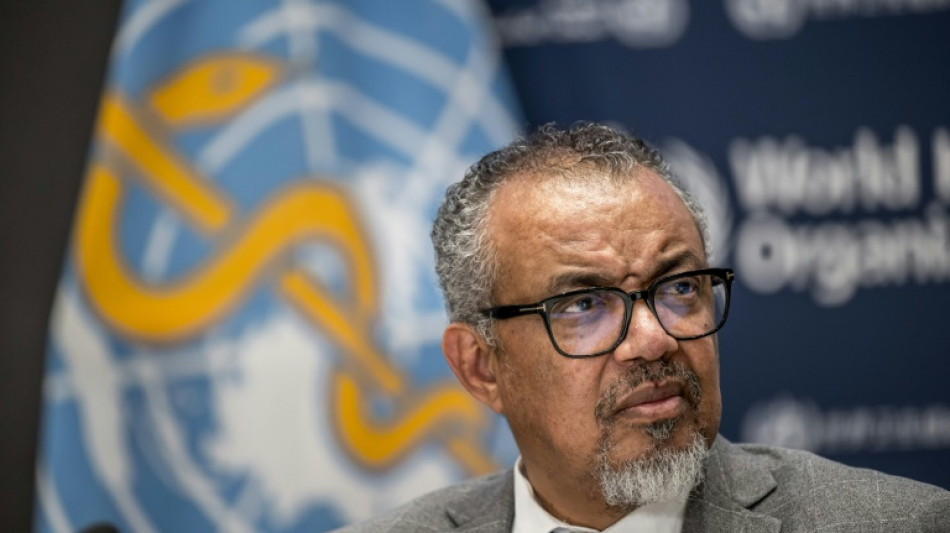
-
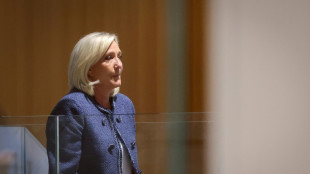 Far-right leaders rally around France's Le Pen after poll ban
Far-right leaders rally around France's Le Pen after poll ban
-
SpaceX launches private astronauts on first crewed polar orbit

-
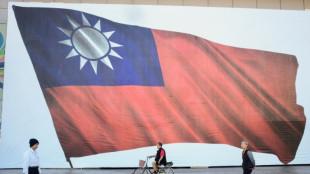 China launches military drills around Taiwan
China launches military drills around Taiwan
-
Political support leading to increasing fallout for crypto

-
 France's Le Pen seeks to keep presidency hopes alive after election ban
France's Le Pen seeks to keep presidency hopes alive after election ban
-
Trump tariffs threaten Latin American steel industry

-
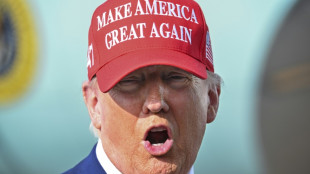 'Tariff man': Trump's long history with trade wars
'Tariff man': Trump's long history with trade wars
-
Tariffs: Economic 'liberation' or straitjacket?
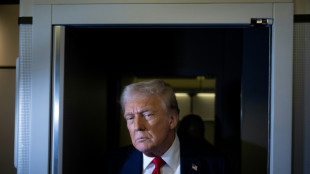
-
 Undocumented migrants turn to Whatsapp to stay ahead of US raids
Undocumented migrants turn to Whatsapp to stay ahead of US raids
-
What next for Venezuela as Trump goes after oil revenues?
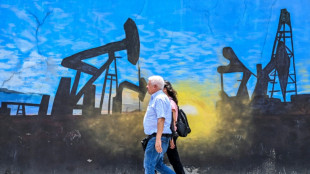
-
 New Zealand Rugby and Ineos settle sponsorship dispute
New Zealand Rugby and Ineos settle sponsorship dispute
-
China says launches military exercises around Taiwan
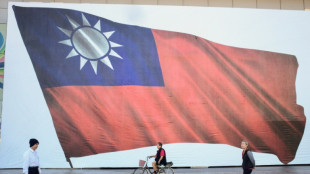
-
 Team New Zealand fails in bid to host 2027 America's Cup
Team New Zealand fails in bid to host 2027 America's Cup
-
Trump says will be 'kind' with tariffs as deadline looms
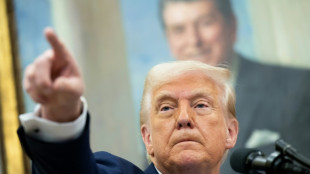
-
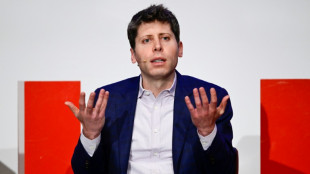 OpenAI says it raised $40 bn at valuation of $300 bn
OpenAI says it raised $40 bn at valuation of $300 bn
-
Safely back on Earth, once-stranded US astronauts ready to fly again
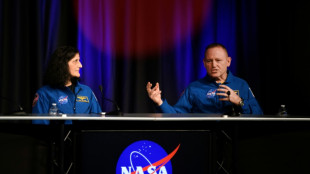
-
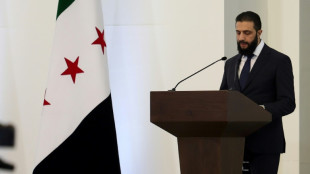 Syria president says new authorities can't satisfy everyone
Syria president says new authorities can't satisfy everyone
-
US robbers who touted crime on Instagram jailed

-
 Fernandes 'not going anywhere', says Man Utd boss Amorim
Fernandes 'not going anywhere', says Man Utd boss Amorim
-
US regulators tell 23andMe to protect genetic data
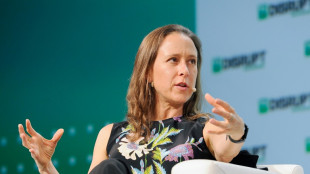
-
 Banana man Ashwani Kumar powers Mumbai to first IPL win of season
Banana man Ashwani Kumar powers Mumbai to first IPL win of season
-
World economies brace for Trump tariffs deadline
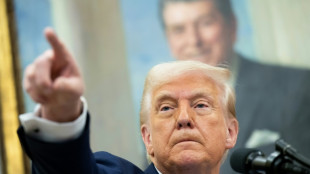
-
 Syrians rejoice during first Eid after Assad's fall
Syrians rejoice during first Eid after Assad's fall
-
Falling inflation drives down poverty in Argentina: statistics agency
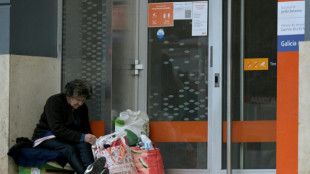
-
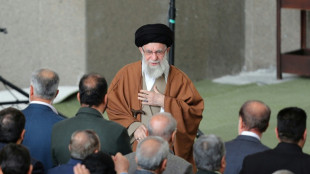 Iran will have 'no choice' but to acquire nukes if attacked: Khamenei adviser
Iran will have 'no choice' but to acquire nukes if attacked: Khamenei adviser
-
France's Le Pen defiant after five year election ban
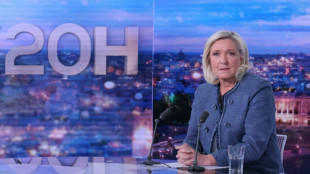
-
 Haaland sidelined by injury in major Man City blow
Haaland sidelined by injury in major Man City blow
-
Israel's Netanyahu slams Qatargate probe as 'political witch hunt'

-
 No technical obstacles to new giant particle collider in Europe: CERN
No technical obstacles to new giant particle collider in Europe: CERN
-
Swing king Ashwani Kumar powers Mumbai to first IPL win of season

-
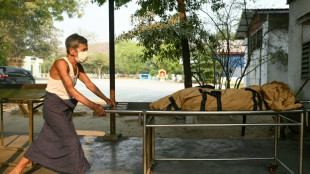 'Noble work' of Buddhist cremations after Myanmar quake
'Noble work' of Buddhist cremations after Myanmar quake
-
Myanmar to mark minute of silence as quake toll passes 2,000
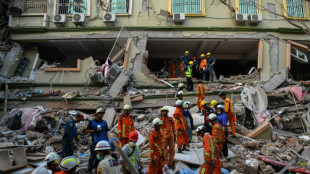
-
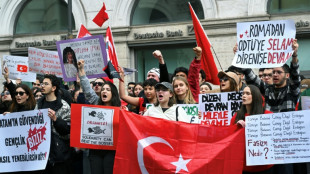 Young Turkish protesters face rude awakening in police custody
Young Turkish protesters face rude awakening in police custody
-
Pentagon chief orders gender-neutral fitness standards for combat troops

-
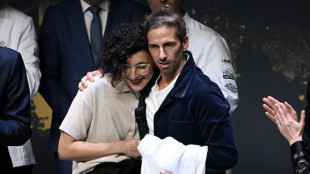 Michelin Guide unveils new stars for 68 restaurants in France
Michelin Guide unveils new stars for 68 restaurants in France
-
Trump confident in finding TikTok buyer before deadline
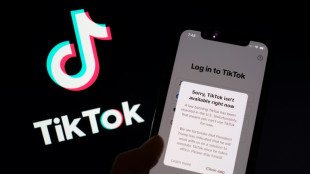
-
 Wrexham reap financial rewards of Hollywood tie-up
Wrexham reap financial rewards of Hollywood tie-up
-
Hamas issues call to arms against displacement as Israel orders new evacuations
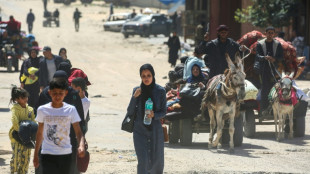
-
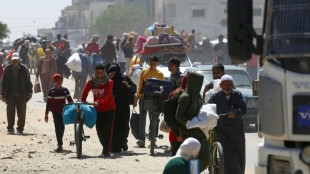 Gazans flee southern city of Rafah after Israel military orders evacuation
Gazans flee southern city of Rafah after Israel military orders evacuation
-
Canada candidates promise less reliance on US a month before vote
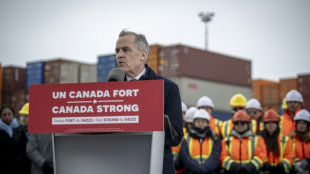
-
 Brathwaite quits as West Indies Test skipper, Hope takes white-ball charge
Brathwaite quits as West Indies Test skipper, Hope takes white-ball charge
-
'No excuses' for tired Forest against Man Utd, says Nuno

-
 Spain coal mine blast kills five
Spain coal mine blast kills five
-
S&P 500 falls into correction as tariff fears rattle stock markets

-
 England Test captain Stokes to miss early county games in fitness battle
England Test captain Stokes to miss early county games in fitness battle
-
Macron vows to defend science as host of UN oceans summit
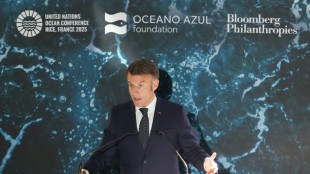
-
 Brain implant turns thoughts into speech in near real-time
Brain implant turns thoughts into speech in near real-time
-
Top aide to Israel's Netanyahu arrested in 'Qatargate' probe
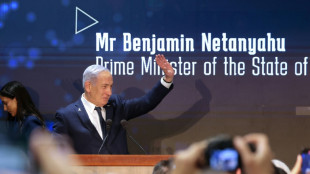
-
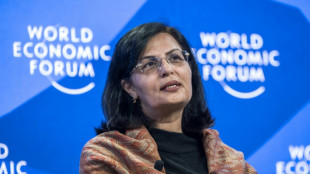 Slashed US funding threatens millions of children: charity chief
Slashed US funding threatens millions of children: charity chief
-
China property giant Vanke reports annual loss of $6.8 bn


WHO must cut budget by fifth after US pullout: email
The World Health Organization has proposed slashing a fifth of its budget following the US decision to withdraw, and must now reduce its reach and workforce, its chief said in an internal email seen by AFP on Saturday.
The WHO is facing an income gap of nearly $600 million in 2025 and has "no choice" but to start making cutbacks, WHO Director-General Tedros Adhanom Ghebreyesus said in the message sent Friday to the UN health agency's staff.
Besides announcing the US pullout from the WHO after returning to the White House in January, President Donald Trump decided to freeze virtually all US foreign aid, including vast assistance to health projects worldwide.
The United States was by far the WHO's biggest donor.
"Dramatic cuts to official development assistance by the United States of America and others are causing massive disruption to countries, NGOs and United Nations agencies, including WHO," Tedros said in his email.
He said that even before Trump triggered the one-year process of withdrawing from the WHO, the organisation was already facing financial constraints.
"The United States' announcement, combined with recent reductions in official development assistance by some countries to fund increased defence spending, has made our situation much more acute," said Tedros.
"While we have achieved substantial cost savings, the prevailing economic and geopolitical conditions have made resource mobilisation particularly difficult.
- WHO budget cut -
Last month, the WHO's executive board reduced the proposed budget for 2026-2027 from $5.3 billion to $4.9 billion.
"Since then, the outlook for development assistance has deteriorated, not only for WHO, but for the whole international health ecosystem," said Tedros.
"We have, therefore, proposed to member states a further reduced budget of $4.2 billion -- a 21 percent reduction from the original proposed budget."
In the body's last two-year budget cycle, for 2022-23, the United States pitched in $1.3 billion, representing 16.3 percent of the WHO's then $7.89 billion budget.
Most of the US funding was through voluntary contributions for specific earmarked projects, rather than fixed membership fees.
"Despite our best efforts, we are now at the point where we have no choice but to reduce the scale of our work and workforce," said Tedros.
"This reduction will begin at headquarters, starting with senior leadership, but will affect all levels and regions," he told staff.
- Impact on lives -
Earlier this month, Tedros asked Washington to reconsider its sharp cuts to global health funding, warning that the sudden halt threatened millions of lives.
He said disruptions to global HIV programmes alone could lead to "more than 10 million additional cases of HIV and three million HIV-related deaths".
The WHO is conducting a prioritisation exercise, to be completed by the end of April, to focus its efforts on core functions.
Since taking office in 2017, Tedros has made it his mission to reform the organisation's finances and put them on a more secure and predictable footing.
To overcome the risk of relying on a handful of traditional major nation-state donors, the WHO now also seeks philanthropy and public donations.
M.A.Colin--AMWN